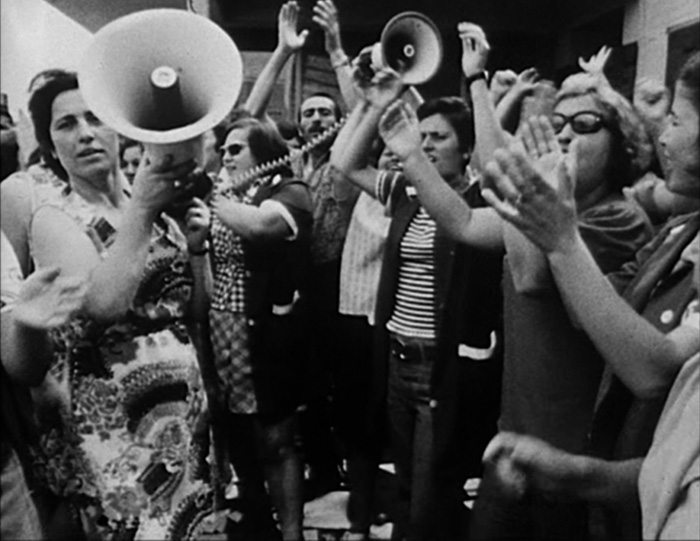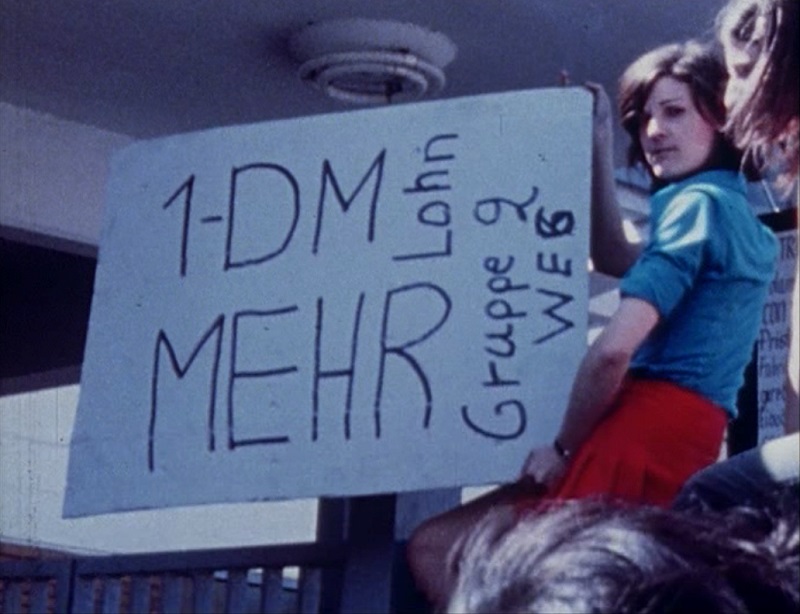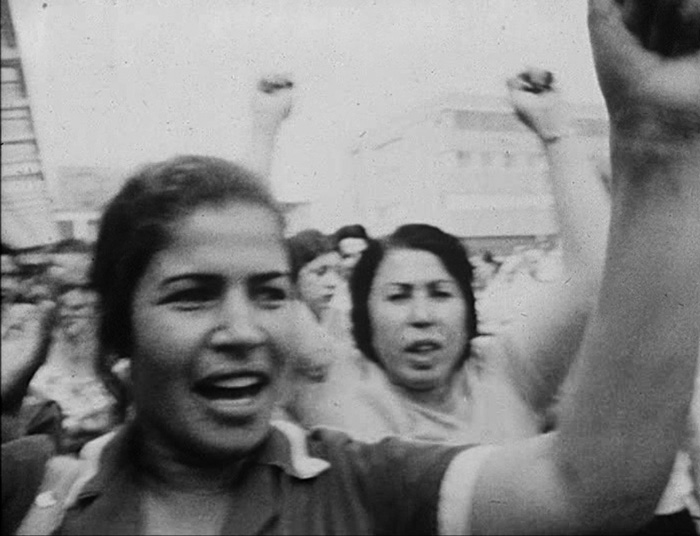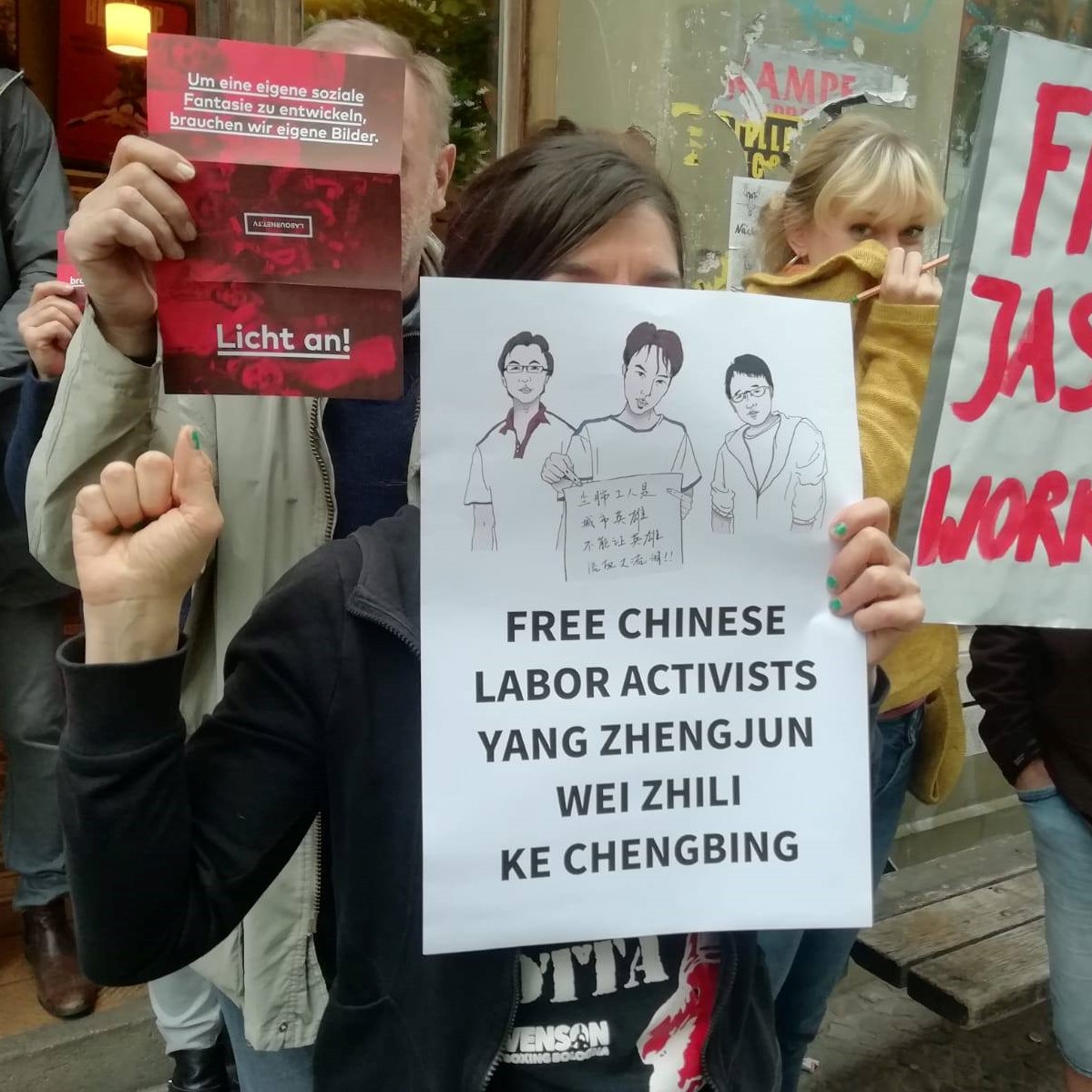labournet.tv was launched ten years ago. It is a project by a women's collective, an online archive for films from the old and new labour movements from all corners of the world. The focus is on the situation of wage labourers: their self-organisation, historic and current labour struggles, and alternative social concepts.
labournet.tv will introduce its archival work and the makers' current film project.
BRD 1974/75 | Director: Edith Marcello, David Wittenberg | Editor, Production: Edith Marcello | Photographs: Peter Leipziger | Colour & b/w | DCP of DVD | 49 min | german OV
Someone wonders off-screen whether serfs still exist in Pierburg: the speaker expresses solidarity with the strike, as does IHR KAMPF IST UNSER KAMPF as a whole. Employees and committed filmmakers recorded the events at the Alfred Pierburg company in August 1973 on Super 8 and 16 mm cameras. For one week, female workers demonstrated for the elimination of a low-wage category that applied only to women, and against wage discrimination in general. At the time, the women earned DM 4.70 an hour. [...] Of a total of 3,800 employees, approximately seventy per cent were migrant labourers, and most of those were women. They demanded equal pay of women and men for equal work, and one more mark per hour for all. They also supported better working conditions overall. In the film, the wokers describe their miserable living conditions in company-owned housing. Little by little, the women gained the complete support of their German (and) male colleagues. The Pierburg strike is legendary because it was initiated primarily by women migrant labourers and because it was successful: for the first time, Pierburg abolished the low-wage category, and they never reinstated it. No one was fired, and the collective bargaining policies of unions were even called into question.
PIERBURG – IHR KAMPF IST UNSER KAMPF [...] was made in close consultation with the strikers and was produced as a promotional tool for, and with, the workforce and the works council. It was conceived primarily to serve as a discussion point for events and intended to connect companies nationwide on a grass-roots basis. Though it was never broadcast on TV, it did play at numerous solidarity events. (Freiraum Neuss e.V.)



| Acronyms | |
|---|---|
| amer. | American English |
| b/w | Black and white |
| OV | Original version |
| SUB | Subtitles |
| +SUB | electronic live subtitling (below the image) |
| INT | Intertitles |
| Countries | |
|---|---|
| AT | Austria |
| FRG | Federal Republic of Germany (historic) |
| BLR | Belarus |
| DE | Germany |
| CAN | Canada |
| GDR | German Democratic Republic (historic) |
| EGY | Egypt |
| FR | France |
| GB | Great Britain |
| URY | Uruguay |
| BRA | Brasil |
| SWE | Sweden |
| UKR | Ukraine |
| PL | Poland |
| IDN | Indonesia |
| PRT | Portugal |
| HRV | Croatia |
| ECU | Ecuador |
| HUN | Hungary |
| AUS | Australia |
| IT | Italy |
| MEX | Mexico |
| IND | India |
Labournet.tv is an online archive of films about strikes and social movements. A small women's collective from Berlin collects and subtitles the films and makes them accessible for free. In addition, the collective regularly films strikes in Berlin and elsewhere and then shows the videos in the "Cinéma Klassenkampf" series, where workers give first-hand accounts of their labor struggles and engage with a public in solidarity. The last longer labornet.tv film is LUFT ZUM ATMEN ("Air to Breathe"), the political portrait of a group of militant workers at Opel in Bochum. Currently, the collective is working on DER LAUTE FRÜHLING ("The loud Spring"), a documentary about the causes and extent of the climate catastrophe - and possible ways out.







